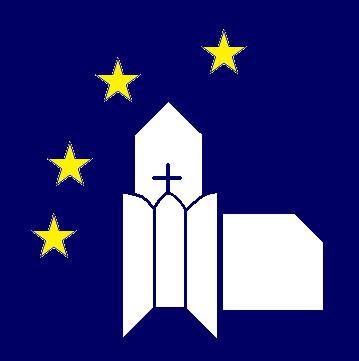1st February 2010
Sad Apelacyjny
Gosc Niedzielny c. Alicja Tysiac
Al.W.Korfantego 117/119
40-156 Katowice
Pologne
Alicja Tysiac versus Gosc Niedzielny
sygn. akt l ACa 790/09
On the eve of the hearing in the Court of Appeal of Katowice scheduled for 19 February 2010, the associations and communities from 15 countries of Europe gathered in the European Network Church on the Move consider it their duty as Catholics to call for conciliation.
Church on the Move is aware of the immense role played by the Catholic Church in the history of the Polish nation and more recently in the communist era. To-day it hopes that the Church, alone in a position to achieve this, is prepared to foster serenity in the debates. Persisting in Court with the language of hatred and sexism, to which Alicja Tysiac has been subjected, and which is sadly ubiquitous these days but utterly alien to the message of the Gospel, would make this impossible.
The offence this mother of three children is reproached with is that she wanted to interrupt, in compliance with the legal provisions in force in her country, a third pregnancy which has made her almost blind and she has demanded justice and compensation.
Church on the Move notes that the argumentation of the advocates of Gosc Niedzielny and of the diocese of Silesia essentially employs the most violent elements of a discourse of defamation, bearing no relation to facts, condemned by the judge, a woman, in first instance. More than once Alicja Tysiac has been called a children killer, compared with Nazi war criminals and abortion likened to the Shoah. Since the judgement in first instance, Gosc Niedzielny has not only not put an end to its use of this language, but on the contrary has intensified and even employs it at judges as well as at European institutions.
Church on the Move trusts that the judges will confirm on appeal the condemnation of this constant use of language which is intolerably offensive to the victims of the Shoah as well as a severe breach of the fundamental principles both of the European Union, of which Poland is a member country, and of the European Convention of Human Rights, to which it is party.
The alternative would amount to legitimating and making one party to insult and defamation, regardless of law. It would compel Alicja Tysiac to seek justice for a second time where she found it the first time, at the European Court of Human Rights.
Perhaps it is necessary for the European Parliament to award her the Sakharov prize to affirm the legitimacy of a struggle with repercussions far beyond Poland's borders and above all in a Europe aspiring to be a community of values, with human rights, democracy and the rule of law enshrined in its foundational texts.
Hubert Tournès
On behalf of
The Secretariat
Simon Bryden-Brook Hugo Castelli Elfriede Harth Hubert Tournès
The Secretary General in charge of relations with the Council of Europe
Professor François Becker
Copy:
Ks. Arcybiskup Jozef Michalik, President of the Bishops' Conference of Poland
Ks. Arcybiskup Jozef Kowalczyk, Apostolic Nuntio
Mons.Aldo Giordano, Permanent Observer of the Holy See to the Council of Europe
Thomas Hammarberg, Commissoner for Human Richts to the Council of Europe
Gabiel Nissim, President of the Human Rights Commission to the Council of Europe
Jerzik Buzek, President of the European Parliament
Hermann van Rompuy, President of the European Council
José Manuel Barroso, President of the European Commission
Sophie in'tVeld, President of the European Parliament Platform for Secularism in Politics
Heidi Hautala, President of the Human Rights Parliamentary CommissionKinga Goencz, Vice-president of the Civil Liberties Parliamentary Commission
